"Modal Land" and Wonderland: worlds of endless possibilities
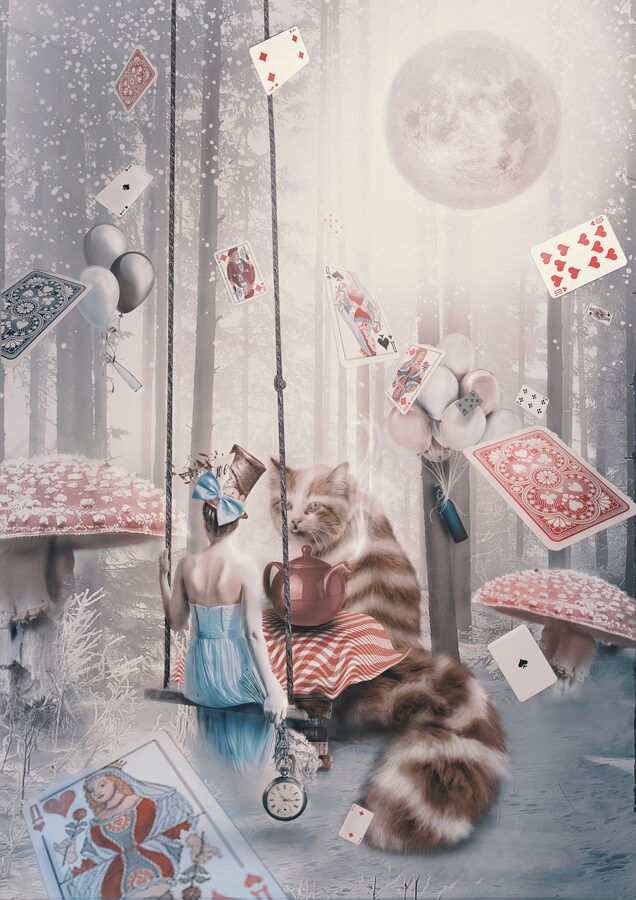
When you think you've mastered English verbs and then you get to modals, you begin to realise that they're rather a different ball game because they only loosely play by the same rules. One modal verb can have more than one meaning or structure depending on its function in the sentence. It's a bit like stepping into Alice's Wonderland; a world which is fashioned on reality but with a topsy turvy logic. Rather than learning modal verbs individually, it's best to learn them by categories so as not to get confused by all the different uses each modal has. In this article we'll look at modals for probability, which I think are most in-keeping with the Wonderland theme.
Before we take a trip to "Modal Land", let's just have a look at the general structures for modal verbs, as they don't follow ordinary verb tenses.

In the present:
Modal + bare infinitive ( inf. without 'to')
E.g. Alice might be dreaming when she enters Wonderland.
In the past:
Modal + have + past participle
E.g. Alice might have been dreaming when she entered Wonderland.
This is the structure for what are known as "pure" modals. Note that the modal itself never changes form. However, there are also "semi" modals: do, have to, need to and can, which conjugate in the same way as verbs in the present simple and past simple but are still followed by the bare infinitive:
E.g. Alice can play croquet but she's never played using flamingos and hedgehogs. (In present) Alice could play croquet but but she'd never played using flamingos and hedgehogs. (In past)
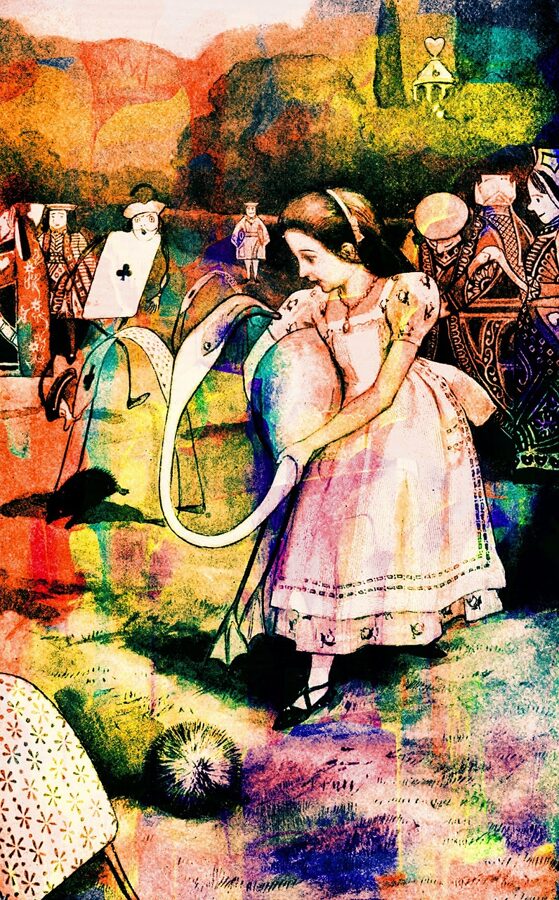
Modals for certainty: must and have to
When you're sure of something, use must or have to. They both mean the same, the only difference is that must is a "pure" modal and have to is a "semi" modal (see above).
E.g. The Queen of Hearts' card guards are in her gardens with red paint. They must/have to be painting the roses red.
The Queen of Hearts' card guards were in her gardens with red paint. They must have been/had to be painting the roses red.
Although both are grammatically correct, I'd say that must is more commonly used for certainty than have to.
You may be wondering at this point: "Aren't must and have to used for obligation?" Well, you're absolutely right, they are! But who said modal verbs can't have more than one function? Welcome to "Modal Land", where nothing is black and white and the possibilities are endless!
Modal for impossibility: can't
When you know that something isn't possible, use can't.
E.g. The Hatter and the Hare can't be sane because they celebrate "unbirthday" tea parties.
The Hatter and the Hare can't have been sane because they celebrated "unbirthday" tea parties.
Note that this use of can is a "pure" modal. Remember can/could as a "semi" modal is for ability or permission. I'll talk more about these uses in another article.

Modals for possibility: could, might and may
These are the modals we use for speculation; when we can't be sure of something and we want to discuss the possibility of it being true.
E.g. The White Rabbit could/might/may be late for visiting the Queen of Hearts.
The Cheshire Cat could/might/may have created Wonderland.
Could in terms of possibility is used independently from can, which, as mentioned above, is only used for either ability or permission. Unless you're using can't for impossibility. Are you still with me? Or am I starting to sound like the Caterpillar? You might need to go back and review this article if I've stopped making sense and you're lost in the woods.


To sum up, the main thing you must remember when venturing through "Modal Land" is not to treat modal verbs as separate verb entities; think of them in terms of categories of functions - such as certainty, possibility and impossibility. As I said earlier, we'll explore more functions in future articles. In this way, you're less likely to get confused by them. For those of you who are studying to take exams in English, in order to get the top marks, you need to be prepared to take a trip to "Modal Land" and use these verbs when speaking and writing. Like Alice visiting Wonderland, the more times you explore "Modal Land", the more you'll understand. Enjoy the adventure!
From head to toe : body idioms

It's been more than a year since my last blog entry and I'd like to say thank you to the students and teachers who have inspired me to take up writing again. Where to begin? Well, for starters, it feels like the world's pulled the rug from underneath our feet (nos ha fastidiado). Living in such nail-biting (emocionante) times, it's hard not to tear your hear out (arrancarse los pelos) or worse, to lose your head (írsele la olla) completely. Like everyone else, with the state of alarm, I've been forced to spend more time at home and have had to develop coping methods for lockdown.
One method which has helped me to keep my feet on the ground (mantener los pies sobre la tierra) has been practising yoga. It's taught me a new kind of self-awareness and to notice how I feel from head to toe (de pies a cabeza). It's also inspired me to write this article and, similar in a way to what I do in my practices, we'll look at parts of the body and also study at least a couple of English idioms connected to each.
In case you firstly need to review the bare bones (lo básico), I've provided a diagram of body vocabulary. Once you've revised this and are comfortable with the words, you can head for (tirar para) the idioms.
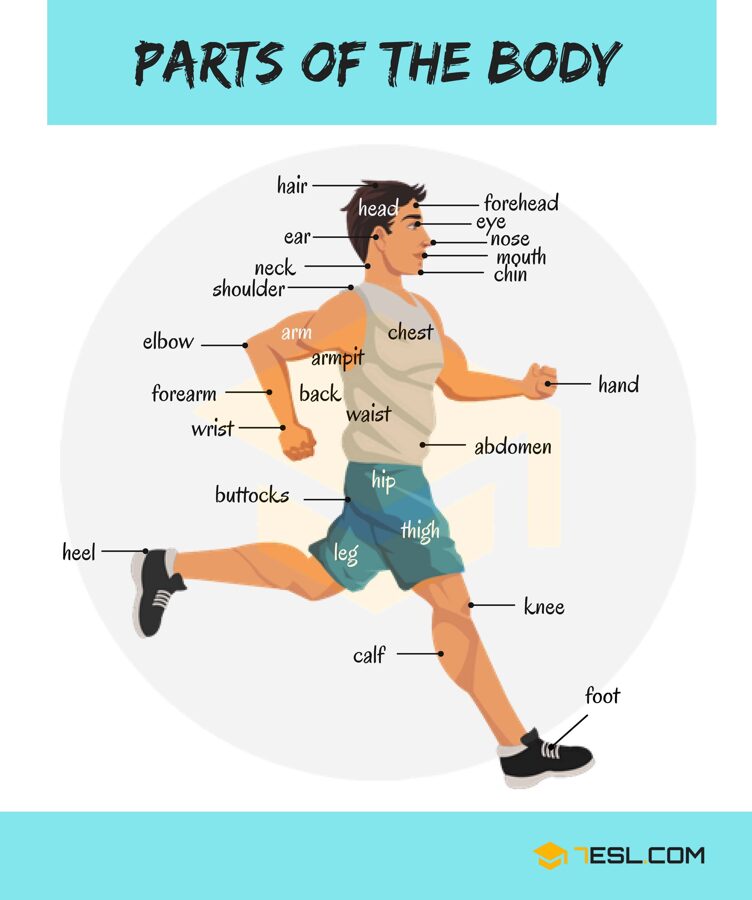
THE HAIR
Get in someone's hair = molestar a alguien de forma continua
E.g. I'd be able to finish my work more quickly if my colleagues weren't getting in my hair!
Let your hair down = relajarse
E.g. You work too much, you should let your hair down once in a while and do something fun.
Split hairs = rizar el rizo
THE HEAD
Be all in your head = Ser su imaginación
E.g. There's no-one there - it's all in your head!
Have your head in the clouds = estar en las nubes/estar en Babia
Be/fall head over heels in love = locamente enamorado
E.g. After their first date, he fell/was head over heels in love with her.
Keep your head above water = mantenerse a flote
E.g. With all the bills they had to pay, they were struggling to keep their heads above water.
THE EYES
An eye for an eye = ojo por ojo
Have an eye for something = tener buen ojo para
Keep an eye out for something/someone = estar atento
E.g. Keep an eye out for thieves in the metro station.
See eye to eye = estar de acuerdo
E.g. We don't always see eye to eye on everything.
There is more to something than meets the eye = aquí hay gato encerrado
THE EARS
Fall on deaf ears = caer en oídos sordos
Be all ears = ser todo oídos
Be music to your ears = te suena música celestial
Somebody's ears are burning = pitarle los oídos a alguien
Play it by ear = ver qué pasa
THE NOSE/MOUTH
Look down your nose at someone or something = mirar a alguien por encima del hombro
Pay through the nose = pagar un ojo de la cara
All mouth and no trousers = mucho ruido y pocas nueces
Put your money where your mouth is = del dicho al hecho hay mucho trecho
E.g. I you think you can do better, then put your money where you mouth is!
Be left with your mouth open = quedarse con la boca abierta
THE FACE/CHEEKS/CHIN
Keep a straight face = mantener la seriedad
E.g. She couldn't keep a straight face while she was telling her friends the joke.
Tongue-in-cheek = en chiste/broma
E.g. Everyone laughed at his tongue-in-cheek comment.
Take it on the chin = aceptar sin quejarse
E.g. The losing side, although they were unhappy about the result took it on the chin and congratulated the winning team.
THE NECK
Be neck and neck = ir a la par/ser parejos
Something/someone is a pain in the neck/butt(ocks) = ser un coñazo/un pesado
Stick your neck out = jugarse la vida
THE CHEST/SHOULDERS/BACK
Have a chip on your shoulder = ser un rencoroso
E.g. He's got a chip on his shoulder about not having been to university.
Get something off your chest = desahogarse
Be/have a weight lifted off your shoulders = quitarse un peso de encima
Stab someone in the back = dar una puñalada por la espalda
THE ARMS/HANDS/FINGERS
Twist someone's arm = torcer el brazo a alguien
To have your hands tied = tener las manos atadas
Live from hand to mouth = vivir precariamente/al día
E.g. Employees who live from hand to mouth shouldn't be asked to work without pay during an economic crisis.
Lend a hand = echar una mano
Wrap someone around your (little) finger = tener a alguien comiendo de la mano
THE LEGS
Not have a leg to stand on = no tener pruebas
E.g. With no evidence to incriminate the suspect, the police had no leg to stand on.
Pull someone's leg = tomar el pelo
Cost an arm and a leg = costar un ojo de la cara
THE KNEES/TOES/HEELS
Think you are the bee's knees = creerse el rey (o la reina) del mambo
Keep someone on their toes = mantener alerta
E.g. To keep students on their toes, teachers like to give class tests every now and again.
Dig in your heels = ser cabezón
E.g. I'm going to dig in my heels on this issue because I know I'm right!
Be someone's Achilles' heel = ser su punto débil
THE FEET
Put your foot in it = meter la pata
Foot the bill = pagar la cuenta
Get cold feet = echarse atrás
E.g. Due to cold feet, the bride ran away from her own wedding.
So now it's time to face the music (dar la cara), to not lose your nerve (no perder el coraje) and get learning these idioms! But don't worry, if all these phrases are making you go weak at the knees (hacerte temblar las piernas), keep your chin up (¡ánimo!) and perhaps study the phrases just for one or a couple of body parts per day.
If learning these (or life in general for that matter) becomes too much and you feel you're struggling to keep a cool head (mantener la calma), then remember that you don't always have to shed blood, sweat and tears (sudar tinta). In order to chill out, you can try your hand at (probar suerte con) something which makes you feel good. In my case it's yoga.
All that remains to be said is: break a leg! (¡mucha suerte!)

Would I lie to you?

There are three tricky verbs in English which often get confused; these are lie (regular verb), lie (irregular verb) and lay. Let's study them!
Lie (reg) = Mentir
This is an intransitive verb (a verb with no direct object).
Conjugation:
Lie Lied Lied Lying
Examples: If Pinnocchio lies, his nose grows.
Si miente Pinocho, se crece la nariz.
Pinnochio lied to his father, Gepetto.
Pinocho mintió a su padre, Gepetto.
If Pinnochio hadn't lied, his nose wouldn't have grown.
Si Pinocho no hubiera mentido, no se habría crecido la nariz.
It's easy to know when Pinnochio is lying.
Es fácil de saber cuando se está mintiendo Pinocho.
Lie (irreg) = Tumbarse
This is also an intransitive verb and is often used as the phrasal verb, lie down.
Conjugation:
Lie Lay Lain Lying
Examples: My cat often lies on my bed.
Mi gato se tumba a menudo encima de la cama.
My cat lay down on my bed and fell asleep.
Mi gato se tumbó encima de la cama y se echó a dormir.
My cat has lain there all afternoon.
Mi gato ha estado tumbado ahí durante toda la tarde.
My cat is still lying there.
Mi gato está tumbado ahí todavía.

Lay = poner
This is a regular, transitive verb (a verb with a direct object).
Conjugation:
Lay Laid Laid Laying
Examples: I have to lay the table.
Tengo que poner la mesa.
The hen laid an egg.
La gallina puso un huevo.
The table still hasn't been laid.
La mesa no se ha puesto todavía.
The hen is laying another egg.
La gallina está poniendo otro huevo.

To sum up, lie and lie are both regular and irregular verbs which are intransitive. They also share the same -ing form, lying. Lay is a regular, transitive verb but it is also the irregular past of lie (tumbarse). Not sure what I'm talking about? Look again.
We Three Kings of Orient

Lewis Carroll
"The Walrus and the Carpenter" from Alice Through the Looking Glass
We're only going to be talking about the last topic mentioned in the quote: Kings. The Epiphany (El Día de Reyes) is fast approaching. Although in anglophone culture we don't have a festive day dedicated to Gaspard (bringer of gold), Melchior (bringer of frankincense) and Balthasar (bringer of myrrh), they are known and go by various different names: The Three Wise Men, The Biblical Magi and, most famously, The Three Kings. To mark the occasion, let's learn some common expressions with the word "King".
To be the King of something
A phrase given to a master or pioneer of something. The female version can be used with "queen". Eg. Elvis was crowned the King of Rock and Roll.
A king's ransom
A fortune. Eg. We had to pay a king's ransom to rent a flat in the city centre.
To live like a king
To live exceptionally well. Eg. My cat lives like a king. All he does is eat, sleep, play and receive lots of attention.
The King's English
Considered the highest and most educated form of British English. As the current ruling monarch is a queen, today's phrase is The Queen's English. Eg. You would never know he was foreign; he speaks the Queen's English.
Luxurious or delicious. Eg. Our hotel suite was fit for a king. The Christmas dinner was fit for a king.
As cocky as the King of Spades
Overly proud. Eg.The firm's CEO is as cocky as the King of Spades, just because he's earning a 8-figure salary!

In the land of the blind, the one-eyed man is king.
Desiderius Erasmus
I wish you all a Happy Kings' Day, and a prosperous 2019! I leave you with the first verse of an English Christmas carol about The Three Kings:

English words with Spanish/Amerindian origins
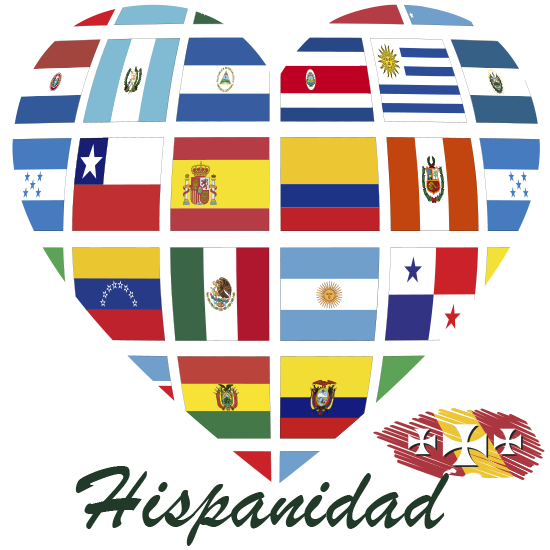
Let's have a look at the Spanish/Amerindian influences on the English language.
The Wild West
Let's face it. The first cowboys were Spanish speakers. The proof is in the vocabulary.
Buckaroo : an old word for a cowboy, this is an anglicization of vaquero
Chaps : originally used by cowboys to protect their legs when riding, from the Spanish word chaparreras
Rodeo : a bull-riding competition from the verb rodear
Desperado : used in the old West to describe a reckless criminal, from the Spanish adjective desesperado
Ranch : Rancho, meaning a small rural community
Stampede : from estampida
Lasso : a rope with a loop used to tie escaping cattle, from the Spanish word lazo.
Ten-Gallon hat : there are 2 theories about the kind of hat a cowboy used to wear. Both have Spanish roots. The first is that the wearer was tan galán and the second is that the name comes from the galón worn around the hat.
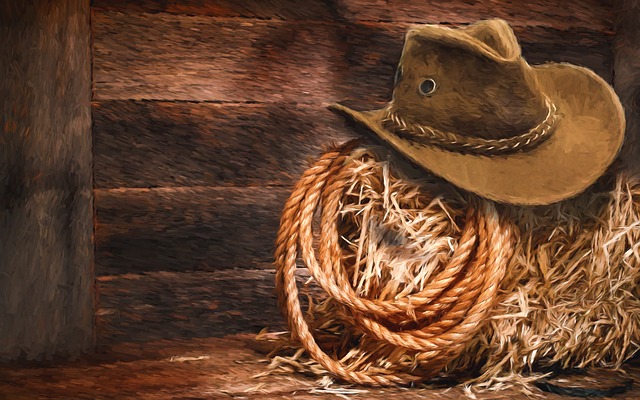
Weather and Geography
Spain and other Spanish-speaking countries have some of the best weather. It's October and I'm still not wearing a coat. Where I'm from, that's reason enough to celebrate.
Breeze : from brisa in Spanish
Sierra
Savanna : in Spanish sabana from the Caribbean Taíno language zabana
Canyon : from cañón in Spanish
Parasol
Tornado
Hurricane : huracán in Spanish, from Taíno language hurákan
El Niño : fenómeno del Niño, literally, "the Christmas child" due to the warming of the Pacific waters around Christmas time
Food and Drink
Hispanic gastronomy is some of the most delicious there is. It's so good that both English and American cultures have adopted it into their cuisine. Here's proof in the language.
Avocado : anglicization of aguacate, from the Mexican Nahuatl word ahuacatl
Barbecue : Spanish barbacoa, from the Central American Chibcha word
Chipotle : meaning “smoked chili pepper”, literally from Mexican Nahuatl chilli + poctli (smoke)
Chocolate : pronounced "choclat" in English, from the Nahuatl word xocolatl (“hot water”)
Cocoa – Spanish cacao, from Nahuatl cacáhuatl
Chorizo : pronounced "chorítsou" in English
Guacamole : from Nahuatl ahuaca-molli, ahuacatl (“avocado”) + molli (“sauce”)
Oregano : pronounced "origáno" in English
Jalapeños : named after Jalapa, a city in Guatemala
Paella : pronounced "paela" in English
Tomato : Spanish tomate, from Nahuatl xitomatl
Potato : Spanish patata, from Taíno batata
Daiquiri : pronounced "dáqueri" in English, this cocktail gets its name from a port city in Cuba
Vanilla : vainilla
Sherry : Jerez
Burrito, Nachos, Piña colada, Mojito, Tequila, Sangría, Salsa, Churros, Cilantro, Chili con carne...the list is endless!
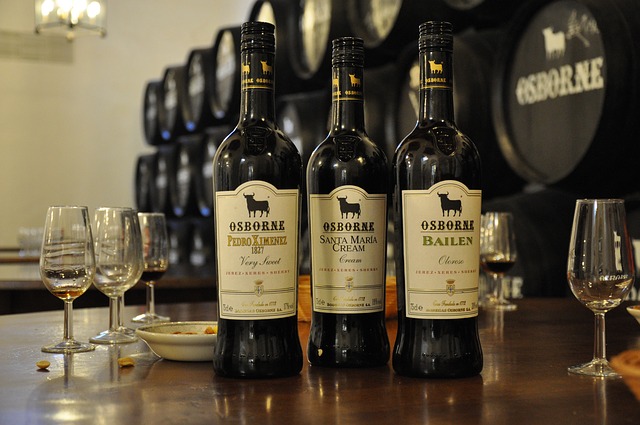
Art, literature and culture
Often overshadowed by the food and drink, but still as important, Hispanic culture has also made it's way into the English language.
Aficionado
Savvy : "Savvy?" = ¿Sabes? "A savvy person" = una persona sabia. Jack Sparrow's favourite word. Here's the proof.
Bodega
Fiesta
Flamenco
Macho
Patio
Rumba
Siesta
Salsa
Tango
Tobacco : Spanish tabaco, from Caribbean Taíno language tabako
Cigar : (puro) from the Spanish word cigarro, originally from the Mayan word sicar (tabaco)
Silo
Quixotic : derived from Cervantes' delusional knight Don Quijote, this adjective describes something completely idealistic, unrealistic and impractical
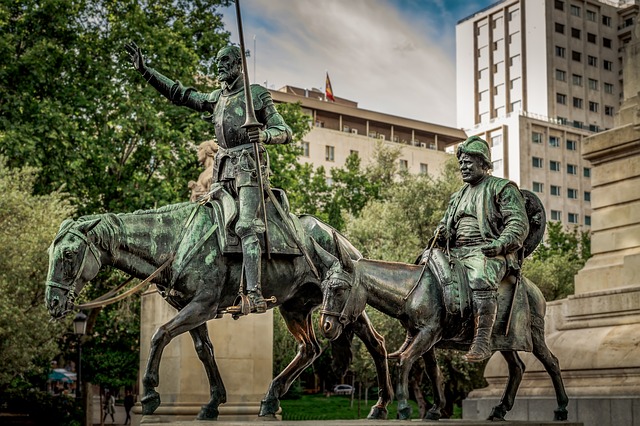
War and conflict
Conquistador
Bandolier : from bandolera, a shoulder belt with loops or pockets for cartridges
Armada : a fleet of warships, from the Real Armada Española
Guerrilla : pronounced "gorila" in English
Renegade : from renegado in Spanish
Vigilante
Trade
Trade between different nations was essential during the colonial years, which is probably how these Spanish words made their way into the English language.
Cargo : from the Spanish word Carga
Embargo
Galleon : from galeón in Spanish
Canoe : Spanish canoa, from Arawakan canaoua
Jade : pronounced "lleid" in English, from the same Spanish word jade
Platinum : platino
Animals
Many animals found in the New World were given names by the Spanish and then adopted by the British. Here are some of them.
Alligator : caimán (literally from the Spainsh El legarto)
Armadillo
Mosquito
Iguana : from the Arawak languages of the Caribbean, iwana
Cockroach : an anglicization of cucaracha
Coyote : from the Mexican Nahuatl language coyotl
Barracuda
Bronco : this wild horse gets its name from the adjective in Spanish
Mustang : deriving from the now exclusively Latin American word mesteño (caballo salvaje), referring to the feral horses which are a descendent of the originally domesticated Spanish horses brought to the Americas.
Puma : pronounced "piuma" in English, from the Andean quechuan language

Shoulda woulda coulda....but did ya? : informal contractions

As promised, above are some examples of informal contractions. If you want to brush up on your ordinary contractions first, take a look at this article first. While I don't recommend you learn to speak using informal contractions, especially if you're thinking of taking an official English exam, you definitely need to be aware of them so that you can understand colloquial speech.
Have a look at the table below. Remember: all contractions are informal and I encourage you to use the "official contractions", except in formal pieces of writing such as reports, essays etc., however "informal contractions" are considered slang and should be avoided altogether if you want to speak properly. Many informal contractions don't have official ones.
INFORMAL CONTRACTION OFFICAL CONTRACTION SEPARATED
Shoulda Should've Should have
Woulda Would've Would have
Coulda Could've Could have *
Dunno Don't know Do not know
Gimme - Give me
Lemme - Let me
Gonna - Going to
Wanna - Want to
Gotta - Got to
(have got to)
Hafta - Have to
Lotta - Lot of
(a lot of)
Kinda - Kind of
Outta - Out of
Wha-di-ya - What do you
Whatcha What're you What are you
*Can't remember when we use past modals? Check out the 3rd conditional in my article King Arthur and the Four Conditionals.
If you'd like some listening practice with informal contractions, I recommend you have a go at the lyrics gap-fill exercise here. It's for the song Shoulda Woulda Coulda by the British singer/songwriter Beverly Knight. Listen to the song on youtube or spotify and see if you can fill in the missing lyrics. Once you have all the lyrics, see how many different informal contractions you can identify. The song is about past regrets. Need help with constructions with wish? Review my article Qué serían tus 3 deseos? For more lyrics gap-fill exercises, go to ¡Yo Amo el Jamón! I Love Rock and Roll!

Jack the Stripper strikes again!

That's right! He's back for the new academic year! If you've got no idea what I'm talking about, I suggest you read this article first. In short, I've compiled together more of the most common vocabulary mistakes I've heard made by Spanish speakers due to false friends; words or phrases that have a similar form in a person's native language but a different meaning in the second language. The best (and funniest) example is "Jack the Stripper" instead of Jack the Ripper (Jack el Destripador in Spanish). So the false friends are Destripador/Stripper. Take note and try not to fall into these traps if you want to avoid being one of the "Stripper's" victims.
Note/Nota
In English, a note is only a short piece of writing such as a memo but never a test score, which is a mark.
Salón/Salon/Saloon
Let's look at salón vs. salon first. Salón means lounge, living room or sitting room in English. You can use any of those words but never salon. A salon refers to the place where a hairdresser or beautician (esteticista) works. So unless one of those is your profession, I highly doubt you have a salon in your house.
A saloon in English is one of those old-fashioned bars seen in Western films with the iconic wooden doors. If you told me you had a saloon in your house, I might ask you how the neighbours felt about it.
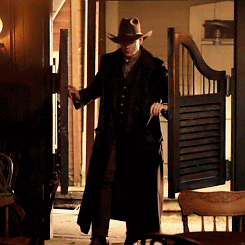
Signature/Assignment /Asignatura
A signature is a firma in Spanish, an assignment is a project and an asignatura is a school subject...got it?
Target/Tarjeta
A target is like an objective and a tarjeta is a card.
Sympathetic/Simpático/Sympatic
Sympatheitc is empático but it never means simpático. Those are false friends. But really, simpático and sympatic mean the same, it's just that sympatic in English has gone out of use. We prefer to use words like kind and friendly instead of sympatic.
Media/Media
Media in English only refers to audiovisual content or the Media (los medios de comunicación). Una nota media would be an average mark and las cinco y media, half past five.
Suceder/Succeed
Suceder in Spanish means to happen. ¿Qué sucede? = What's happening? On the other hand, to succeed in English means tener éxito/triunfar. He succeeded in passing the exam= tuvo éxito/triunfó a la hora del examen.
Suceso/Success
The same goes for these two, which are the nouns of the words above.
Cost/Costar
Cost is only used for money in English. For costar tiempo we say that something takes time.
Probar/Prove
Probar means try and prove is to show something is true with evidence. Therefore, you can prove a theory but you can't prove a cake!
Evidencia/Evidence
Similar to above, evidence are pruebas and evidencia is something obvious or a fact.
Efectivamente/Effectively
These two do actually have the same meaning when you're making an affirmation. However, be careful because we're unlikely to use effectively in this way in English outside of formal contexts, when it's replaced by in fact.
Eg. What you're saying is effectively* true. *formal
in fact true
When efectivamente is used as a one-word affirmation in Spanish, this becomes of course in English : ¡Efectivamente! Of course!
Don't forget that effectively has another meaning in English, which is eficazmente. So this is the false friend.
Eg. Shakespeare used language effectively.
Shakespeare usó lenguaje eficazmente.
En caso de/In case of vs. Por si acaso/In case
Make sure you don't get these nasties mixed up! In case of is used for emergency situations:
Eg. In case of fire, break the glass.
En caso de incendio, rompe el cristal.
In case is simply a precautionary measure in preparation for a possible (not neccessarily catastrophic) occurence:
Eg. Take an umbrella in case it rains.
Llevaros paraguas por si acaso llueve.

Actually/Actualmente
Actually means en realidad and actualmente is currently.
Grape/Grapa
A grape is a fruit and a grapa is a staple.
Cup/Copa
Don't go ordering a cup (taza) of wine - you won't sound very dignified! A copa is a (wine) glass.
Fail/Fallar
The verb to fail is suspender but fallar means to make a mistake.
Savage/Salvaje
The word savage has a negative connotation in English, similar to brutal. On the other hand, salvaje normally refers to something wild. To make the distinction, think of a rabbit. They can be wild (salvaje)but not savage (brutal). The Monty Python bunny being the exception.
Plato/Plate
These two are friends if we're talking about what you put food on. When they become false friends is when we start talking about starter, main course and dessert. Then they're dishes (or courses) not plates.
Curso/Course
As I said above, a couse can be a starter, main or dessert. It can also be something you take classes for eg. An English course. However, it isn't used in English to refer to the academic year. For instance, in Spanish you could talk about el último curso and this would be the final year in English.
Pretender/Pretend
Pretender means to try but pretend in English is fingir.
Circulation/Circulación
Both refer to the blood flow around the body and also with reference to publishing. But the difference lies in the fact that we can't use circulation to describe the movement of people or traffic arount a city. In this case, circulación would be flow.
Who was Jack the Ripper?
See if you can identify the false friends from above in this text.
We actually don't know who he was! Jack the Ripper is only the nickname given to a savage serial killer who was active around Whitechapel, an area of London, in 1888. His target victims were female prostitutes, of whom he pretended to be a potential client before brutally murdering them. The Media and police even received notes from the supposed killer, however, these may have been written by journalists in an attempt to create fake evidence, heighten interest in the story and increase their newspapers' circulation.
Although at the time the police failed to prove the true identity of London's most infamous killer, they believed the Ripper, if not a surgeon, had anatomical knowledge due to the fact that many of his victims were mutilated with a certain precision. They also suspected he was a local Whitechapel resident. His apparent ability to disappear immediately after the killings suggests an intimate knowledge of the Whitechapel neighbourhood. Despite continued interest in the case, as well as ongoing investigation by both professional and amateur researchers, Jack the Ripper's true identity will almost certainly never be known.
In case you're interested in thrillers about investigating serial murders, you might want to try watching The Alienist on Netflix.

Languages are for life .... not just for your CV

No one can deny that speaking a foreign language is a skill which looks great on your résumé. Here in Spain, an intermediate level of English is also needed nowadays in order to graduate from university and, if you're thinking about a career in education, a qualification in a foreign language scores you extra points in the government exams, particularly as many Spanish public schools are now bilingual. That said, foreign languages can be so much more than simply a way to score points, if you let them become a part of your daily life.
The Frankish King and Holy Roman Emperor, Charlemagne supposedly once said:
To have another language is to possess a second soul.
This couldn't be more true. And he should know, given that he spoke at least 3 other languages apart from his native tongue. Speaking a foreign language is like possessing a magic key that opens the box to a part of your brain that perhaps you never knew could exist. Some people even have a different voice when they speak another language. Having this "second soul" adds value to your personal and professional life. By speaking a foreign language you almost undoubtedly establish relationships with others, with whom perhaps you couldn't in your native tongue. If you're speaking another's native language, you will often be applauded just for trying and maybe even viewed in a different light.

By speaking the language of the country in which you live, work or travel to, you are immediately treated with respect and are able to access a completely different level of that society because language is the key to understanding culture and customs. It may allow you to enjoy the experience more as you're free of the stresses of making yourself understood and cultural differences won't seem like such a shock.
While it might be true that youngsters can pick up a new language more easily, an adult has something a child may not have; the motivation and understanding of the need and value of learning something, which is the key element to being a successful language learner. In addition to this, language learning is good for your mental health as it keeps your brain active. Scientific research even shows that being bilingual may prevent the onset of dementia. Now that’s definitely one of the best reasons to speak a foreign language later in life!
If you know you need English to get that qualification or to stand a better chance in the global job market, I can't stress this enough: plan ahead. Think of going from A1 to B2 level English as a diet where you're trying to lose weight. If you've got a lot of weight to lose, or in this case, a lot of English to learn, then the healthiest and most sustainable way to do it is over the course of several years. Crash diets, similar to crash English courses, rarely work long term and operation bikini (or operation First Certificate) in 3 months can be overkill; to the point that after the operation's over, people seldom want to continue. And what are the best diets which help you achieve your weight goals? The ones which most easily can become part of your lifestyle without being too restrictive. Find ways to make English part of your life. This doesn't mean seriously hitting the grammar books all the time or forcing yourself to learn the Oxford Dictionary by heart.

Think about what you like to do and try to fit English around it. If you're a cinephile, watch films in original version. If you're into books, try reading your favourite in English. If you love socialising and meeting new people, then join an English language exchange or conversation group. If you combine English with something you enjoy, you're more likely to keep it up, so once exam time or an English job opportunity comes around, you're already halfway there!
San Fermín: bull and cow idioms
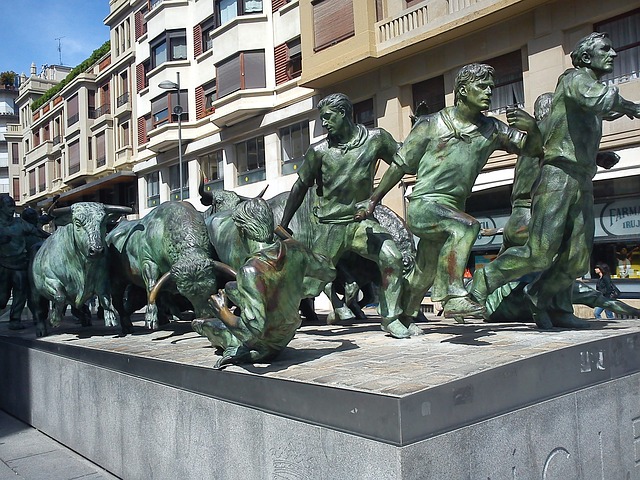
Continuing with our Saints theme, we come to the second big summer festival, San Fermín, celebrated every year in Pamplona from 6th-14th July. This is perhaps the most famous Spanish fiesta worldwide and the main event is the encierro, which involves running through the streets being chased by bulls. If that's not your cup of tea, why not try learning these bull and cow idioms in English?
A bull in a china shop = un elefante en una cacharrería
Hit the bull's eye = dar en el blanco

Take the bull by the horns = tomar el toro por los cuernos
A cock and bull story = un cuento chino
A cash cow = una mina de oro
Have a cow = get very angry or upset about something
Eg. Bart Simpson is famous for his phrase "don't have a cow, man!" when he tries to calm someone down.
 Until the cows come home = until very late/early morning
Until the cows come home = until very late/early morning
Eg. They partied until the cows came home.
As awkward as a cow on roller skates = someone who looks very awkard
Eg. She was the only one in fancy dress at the party and looked as awkward as a cow on rolloer skates.
Athough bulls aren't widely used in festivals in anglophone culture, like in Spain, comparable events in North America involving them are rodeos; such as the Calgary Stampede in Canada, which takes place during the exact same dates as San Fermín. For those of you, like myself, who won't be going to Pamplona this year, you can still get in the spirit by learning some of these expressions in English. Go on! Take the bull by the horns!
San Juan, Sparklers, the Summer Solstice and Stonehenge
Today marks the celebration of La Noche de San Juan, the eve of Saint John the Baptist's Day, which also coincides with the shortest night of the year. The Summer Solstice (also known as Litha in many parts of Europe) is a pagan festival that celebrates the longest day of the year. Here in Spain, the Christian festival Saint John's Day and the Pagan Litha are combined to form the festivity La Noche de San Juan, which happens every year on the night of 23rd June. Bonfires (hogueras) are lit, fireworks (fuegos artificiales) and sparklers (bengalas) can be seen. In some parts of Spain, people even jump over the bonfire!

This jumping over the bonfire can be compared to the same ritual during the Slavic festival Ivan Kupala, which is also celebrated on John the Baptist's birthday. It is seen as a "baptism of fire" to purify the soul. Similarly, here in Spain it's a symbol of protection against evil spirits. In coastal regions, additionally, bathing in the sea and jumping the waves is done to promote good health.
How does all this relate to the British Isles? I hear you ask. Well, apart from in the West of Ireland, where Bonfire Night is like in Spain, on St. John's Eve, Bonfire Night is actually something completely different in the UK. Held on 5th November, it celebrates the attempt by a group of Catholic conspirators to blow up the Houses of Parliament in order to assassinate the Protestant King James I. We have all the same bonfire, sparkler and firework traditions, except instead of jumping over the bonfire, we burn a scarecrow (espantapájaros) called "the Guy", represntative of the most famous conspirator, Guy Fawkes. If you're interested in learning more about the history behind this failed plot, I recommend you watch the miniseries Gunpowder. You can find it on HBO and it stars Kit Harrington; better-known as his Game of Thrones character, John Snow.

Despite not having the same Summer Solstice traditions as Spain and other cultures, there is a rather unique celebration in the South of England near Salisbury at the prehistoric monument of Stonehenge. Here at dawn on 21st June, the exact date of the Solstice, many modern-day Druids gather to celebrate the Sun rising over the stones on the longest day. Although nobody really knows the true purpose of Stonehenge, as it was built long before the Druids, one recognised theory is that it was built to track the movements of the Sun and Moon, a bit like an early sundial (reloj solar), which is why the Druids meet here during the Summer Solstice. It's also the only time at which you can visit Stonehenge for free and get right up close to the stones, if you're thinking of going.

I was surprised to find that El País covered the event. They've put together some good pictures. https://elpais.com/elpais/2018/06/21/album/1529567962_577717.html#foto_gal_1
Just forgive and ignore the comment that someone's written at the end of the article. He clearly hasn't understood the importance of the place and festival in British Heritage. If you'd like to learn more about the history of the early Druids, I recommend watching the series Britannia on HBO. The story isn't the most interesting but it gives a decent insight into Celtic Britain before the Roman occupation.

Furthermore, the people the El País commenter calls "majaretas" are advocates of maintaining the link between humans and the natural world-a connection we're rapidly losing! Additionally, their beliefs are centred around environmental protection-something which we're slowly trying to adopt in our post-truth society to reverse climate change. Perhaps some of the outfits the Druids wear during the celebration are slightly strange but I don't see anything crazy about being at one with nature. In my opinion, witnessing natural phenomena can be one of the most amazing and humbling experiences.
Enjoy the festivities and happy San Juan/Summer Solstice!

Somewhere over the rainbow ... colour idioms

This week we're seeing colours! Below are many common idioms in English related to colour. Some of them are very similar to Spanish, however, some are completely different.
Be in the redEstar en números rojosI owed a lot of money on my credit card and now I'm in the red.
Be caught red-handedPillar con las manos en la masaThe police caught the thief red-handed.
Come out of the blueLlegar de la nadaShe hadn't seen an old friend in years and then he appeared out of the blue.
Once in a blue moonDe ciento a vientoAn eclipse happens once in a blue moon.
Be greenEstar verdeThe intern was green at his job.
Have green fingersTener manos de jardineroMy parents spend a lot of time in the garden as they have green fingers.
Go green with envyEstar verde de envidiaThe actress went green with envy when she learned that her rival had been given the part in the film.
Be tickled pinkEstar contentísimoShe'll be tickled pink when she hears the good news!
Tell a white lieDecir una mentir piadosaEveryone tells white lies from time to time to avoid offending others.
Be the black sheepSer la oveja negraBeing the only one to drop out of school, he was considered the black sheep of the family.
A grey areaEstar en la zona grisFor the moment, the rules of netiquette on social media are still a grey area.
Pass with flying coloursSacar un sobresalienteThey passed their English exams with flying colours.
Show one's true coloursMostrar sus verdaderos coloresOnce the politician was elected as leader, he showed his true colours by not fulfilling the promises he had made in his campaign.
Apart from being aesthetically beautiful, colours are steeped in meaning. They can conjure up certain emotions, such red being related to anger or green to nature, which is why they're purposefully used all the time in paintings and film to give the artistry another dimension. For more on this, watch this montage of colours used in scenes from films.
Need help with British dialects for watching TV series?
THE SCOTTISH DIALECT

In the series Outlander, we find ourselves in the Scottish Highlands. Claire, an English woman, travels back in time to 18th Century Scotland and meets Jamie, Laird of Clan Mackenzie. Together they must fight to retain clan life and against the tyranny of the English. The Mackenzie clan speaks Scottish Gaelic, which is a completely different language in itself. That said, even when the Highlanders in the series speak English, they often use wonderful words and other colourful expressions which you won't find in your average dictionary. Here are some of them:
Ken = know/understand
Examples:
D'ye ken? = Do you understand?
A really didnae ken. = I really don't know.
Laird = Lord
Bairn = baby This one is also used in some Northern English dialects.
Wee = little
Braw = brave but can also mean excellent
Clot-heid = cloth-head, idiot
Dinna fash = Don't worry
Canny In Scottish and Northern English, it means nice, pleasant
Example:
She's a canny lass. = She's a nice girl.
Bonnie = good-looking
Example:
He's a wee bonnie lad! = He's a good-looking little boy!
THE BRUMMIE DIALECT

Now we've moved to the post-World War I era in Peaky Blinders, set in Small Heath, Birmingham. The ruthless gang The Peaky Blinders is at large, owning the streets of Britain's second city. The Brummie (from Birmingham) speech is a very urban, working class accent which is quite harsh in sound; perhaps one of the reasons why it doesn't normally figure in people's favourite British accents. Nevertheless, the actors, most of them not from Birmingham, do an excellent job of imitating a difficult accent which is rarely heard in TV series. Let's have a look at some unusual words and expressions which form the Brummie dialect.
Bab/babby = babe/baby
Kipper tie = cup of tea
Got a cob on = be in a bad mood
Example:
He's got a cob on. = He's in a bad mood.
Island = roundabout
Tarabit = goodbye
Snap = food
Mucker = friend
Example:
Fancy a pint, me old mucker? = Would you like a pint, my old friend?
Go and play up your own end! = Said to children making to much noise.
Going round the Wrekin = A broader Midlands term, meaning going the long way round (the Wrekin is a hill in Shropshire)
THE CORNISH DIALECT

Way down south, at the tip of England, we find Cornwall, which is where our final series is set. Captain Ross Poldark, along with his wife Demelza, must battle against social injustices of the day, which arguably still exist in the 21st Century. Although poles apart, similar to Scotland, Cornwall has it's own regional language, known as Cornish; however, this isn't heard in the series. Most likely because by the late 18th Century, when the series is set, the language had become almost extinct. Unlike in Outlander, where the Laird speaks the same local accent and dialect as the rest of the clan, in Poldark, the Cornish accent and dialect is used to distinguish between the social classes. The Poldarks themselves are all very well spoken. Even Ross, who tries to distance himself from his family and the upper classes, is given away by his educated speech. On the other hand, characters like Judd, Trudy and Demelza, as they're of the working class, speak with the Cornish dialect, which is a rich mix of the old Cornish language and English. Here are some examples:
Alright, my 'ansome? = How are you?
I'll do it dreckly = Lo haré mañana (or in other words, as and when I feel like it!)
Proper job = The Cornish/Devonshire stamp of quality. Anything excellent is a "proper job".
Emmet = The Cornish word for "guiris", except they also use it to refer to other English people from outside Cornwall.
Stank = walk
Kiddlywink = An unlicensed beer shop, a kiddlywink was permitted to sell beer or cider but not spirits like traditional taverns and inns. So shopkeepers would keep contraband brandy in a kettle under the counter. The knowing clientele, often smugglers and other disreputable types, would then wink at the kettle when they needed a top up.
Chacking = thirsty
Example:
I'm chacking for a cider. I'll be down at the kiddlywink if you need me.
Whist = weak or faint
Piddledowndidda? = Was it raining? Despite all the beautiful sunny days seen in Poldark, the chances are that if you're in Cornwall the answer to this question is "yes."
Giss on! = Don't talk rubbish!
Wasson me cock? = What's up?
Teasy as'n adder = bad-tempered
Example:
He's drunk too much cider down at the kiddlywink and now he's teasy as'n adder!
To sum up, there is not one form of English in the UK. As we have seen from examples of just 3 series, British English is in fact a melting pot of dialects and accents which vary greatly from north to south. Even though the series are all period dramas, the accents and dialects are still very much alive today and mark differences in socio-economic backgrounds. Taking all this into account, it's not surprising that English is the language which differs most greatly, in terms of accent and dialect, per sqaure kilometre in the world.
Alright me 'ansomes? If you're chacking for a braw series and want to sound less like an emmet, make yourself a kipper tie and some snap and try watching one of these. Don't get teasy as'n adder though if it's difficult to ken at first. Dinna fash! You have to go round the Wrekin a couple of times to fully master English. Do it dreckly and make it a proper job, d'ye ken?
Obviously no sane British person would mix all 3 dialects together like this. It's just a little test to see how much of the vocabulary you remember and to show you how it can be used in context. 😊
Tarabit!
Who's hungry? : Food idioms

*meaning something interesting but complex which makes you think.
Spill the beans!
¡Suéltalo!
Be a fish out of waterEstar más perdido que un pulpo en un garaje

Get egg on your faceQuedar en ridículo

Have bigger fish to fryTener cosas más importantes que hacer

Be as cool as a cucumberEstar fresco como una lechuga

Be in a pickleMeterse en un lío
Act like a wet lettucePortarse como imbécil
Bring home the bacon
Ganarse el pan

Be cheesySer cutre
Have a lot on your plateTener muchos asuntos pendientes
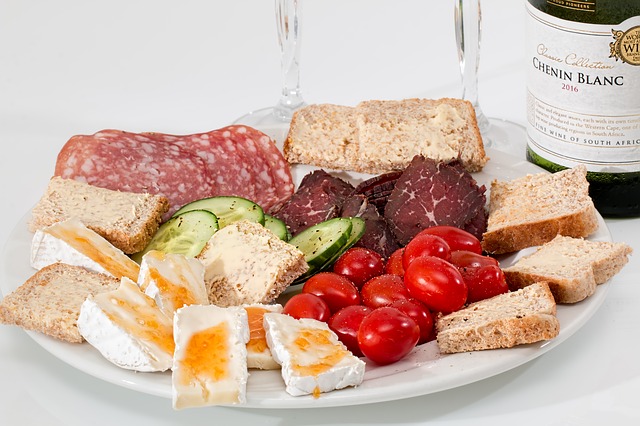


It's no point crying over spilt milkLlover sobre mojado
It's not my cup of teaNo es santo de mi devoción
Take something with a pinch of saltCoger con pinzas
Be bread and butterSer de primera necesidad

Be nutsEstar loco
Be a tough nut to crackSer un hueso difícil de roer
Be as cheap as chipsSer una ganga
I bet that's whetted your appetite! Remember that there's no such thing as a free lunch, meaning there's no achievement without hard work. If you want to impress your English-speaking friends, you'll need to learn and practise using these idiomatic expressions.
King Arthur and the Four Conditionals

Merlin's Cave, Tintagel, Cornwall (UK)

The sword of King Arthur, Brocéliande, Brittany (France)
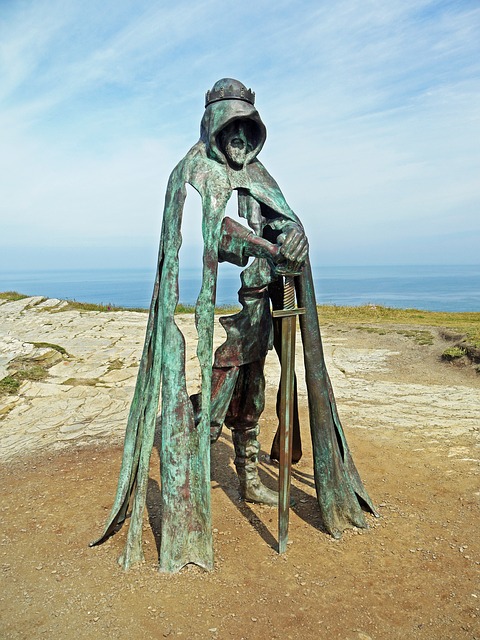
King Arthur Statue, Tintagel, Cornwall (UK)
As well as talking about the here and now, it's useful to be able to discuss future outcomes and to speak hypothetically in English. To do this, we need to look at the 4 conditionals, to which I've decided to give an Arthurian theme, since the King Arthur story is steeped in mystery and speculation.
The Zero Conditional
If + present simple + present simple
If you pull the sword from the stone, you become king/queen.
The zero conditional refers to general facts or truths.
The First Conditional
If + present simple + future simple
If Arthur pulls the sword from the stone, he'll become king.The 1st conditional is used to talk about real situations in the present with a future outcome. Notice how the example of the zero conditional uses 'you' to refer to people in general, whereas the 1st conditional phrase is specific to Arthur.
The Second Conditional
If + past simple + would
If Arthur pulled the sword from the stone, he would become king.Like the 1st conditional, the 2nd conditional is for present situations; however, they are unreal or hypothetical sentences, so the difference between the 1st and 2nd conditionals is reality vs. the imaginary. In this sentence, Arthur hasn't pulled the sword from the stone and he isn't king (at least not yet!)
The Third Conditional
If + past perfect + would have
If Arthur had pulled the sword from the stone, he would have become king.Here, we are looking back on an alternative reality. In this example, Arthur didn't pull the sword from the stone, therefore he didn't become king. While the 2nd conditional looks at the imaginary present, we can say that the 3rd conditional expresses an unreal action in the past.
Mixed Conditionals
These are usually composed of a combination of the 1st and 2nd conditionals:
If + past perfect + would
If Merlin hadn't told Arthur about the prophecy, he wouldn't be king now. If + past simple + would have
If King Arthur was/were alive today, he would have wanted us to know about him.
We use a mixed conditional to express an unreal idea with a shift in time from the past to the present or vice versa. In the first example, we can deduce that Merlin told Arthur about the prophecy and this is why he is now king. In the second, although King Arthur is no longer alive, he would have wanted us to know of his legacy. Notice how the verb to be in the past simple can be used with was or were, regardless of the person. This is something unique to conditionals.
The conditionals are referred to as 'if' clauses because, as we've seen, they very often use this conjunction. Nevertheless, there are alternatives to if, such as unless, provided (that), as long as etc.
As long as/Provided/(Unless) the Knights of the Round Table help him, King Arthur can(not) defeat his enemies.Notice how, although as long as and provided are used in the same way as if, unless uses the opposite verb form; in this case the negative. Now that we've seen all the conditionals, let's see them being put into practice in the following paragraphs about the Arthurian legend in British history.
If King Arthur existed, what would he have been like? The truth is nobody really knows as there are no historical records of him, only fiction. Historians have looked to known figures in history who were alive around the same time as the Arthurian legend. One of several candidates whose life parallels with Arthur's is Alfred the Great, a 9th Century English king of Wessex; formerly a region of south-west England. If the legend of Arthur were based on King Alfred, this would make a lot of sense as, like Arthur, Alfred successfully defended his kingdom from invasions. Comparable to Arthur's chivalry, he also had a reputation as a gracious and merciful man who improved the overall quality of life in his kingdom.
There are many myths surrounding the Arthurian legend. Tintagel, England is believed to be Arthur's home (see above); however, he does also appear in French literature. If Tintagel was his home, this ties in with the idea of King Alfred being inspiration for the legend because Tintagel would have formed part of the kingdom of Wessex at the time. And what of his famous sword, Excalibur? According to some Arthurian literature, Excalibur was the sword he pulled from the stone, unless we're to believe other texts, alternatively stating that the sword in the stone wasn't actually Excalibur, which was given to him at a later date by The Lady of the Lake.
Despite the contradiction surrounding the legend, what is true is that King Arthur is an iconic figure in British culture who appears a great deal in Medieval literature and, much more recently, in film. As long as people remain interested in the legend, King Arthur's legacy will live on.

Statue of Alfred the Great, Winchester (UK)
Could this be the man behind the Arthurian Legend?
Am I going on a trip, travel, tour, voyage or journey?

With the Easter break just around the corner (and a 4-day weekend if you live in Spain!) you might need to know the difference between these words; especially if you're planning to go further afield. We'll look at each of them one-by-one.
The first we'll study is 'trip'. This noun is countable and refers to the whole holiday (or business) experience which usually lasts a relatively short period of time. Eg. They went on an amazing two-week ski trip to the Pyrenees. To help you remember this, think of the website Tripadvisor. There, you can read reviews of travellers' experiences. Remember! Although the verb 'to trip' does exist, it has nothing to do with holidays: it means tropezar.
The next, however, is a verb and a noun with more or less the same meaning. The uncountable noun 'travel' refers to the concept of moving around in general. Eg. Travel abroad is now more affordable thanks to low-cost airlines. As with all uncountable nouns, 'travel' can never be used with the indefinite article (a). Nevertheless, in certain instances, it's found in the plural; like in the title of the book Gulliver's Travels. But if you use 'travel' like any other uncountable noun, you'll never be wrong. 'To travel' is the standard verb which we use to refer to getting about. Eg. I'm travelling to Seville on Easter Thursday to spend the weekend with my family.
'Tour' can be used when you're talking about visiting several different sights within a city. For instance, a sightseeing tour of Stratford-upon-Avon, my hometown, would involve visiting the various Shakespeare houses. Without trying to sound too much like a tour operator click here if you'd like more information on this. A tour can also describe visiting different cities within a country or even several countries around the world. This is very often used when talking about famous performing artists. Eg. Adele's world tour kicks off in Barcelona, Spain.
The physical meaning of 'journey' exclusively expresses the travel from one place to the destination (not destiny). In other words, from A to B. For this reason, 'journey' is often combined with means of transport. Eg. The bus journey from my house to work takes half an hour. However, can also be used in an abstract context to describe an emotional experience. Eg. As part of a spiritual journey, some people practise yoga or meditation.

For longer journeys of several weeks or months, 'voyage' is used. This word is only really reserved for long sea or space journeys, so unless you're a sailor, pirate or astronaut, you're not likely to use 'voyage' on a regular basis. As with 'journey', a 'voyage' is only used to describe the route to arrive at your destination; therefore cruises don't count as voyages!
And finally ...... holiday or holidays?
This is a question asked by many students of all levels. My advice is to treat 'holiday' like any other countable noun in English. If you're talking about one holiday then use the singular noun preceded by the indefinite aticle (a). If you're discussing holidays in general or various ones you've been on, then, logically, the plural noun is necessary.
The only exception with the plural noun is when we talk about periods of the year during which everyone has time off; so we talk about the Easter/Christmas/Summer holidays. I think this is a throwback to a time when 'holiday' actually meant 'holy day' (día sagrado) and when people's holidays only coincided with the Church calendar. Historically speaking, people would have had four Easter 'holy days' and therefore it's a quirk of the English language which hasn't been adapted for modern usage.
As the title suggests, all the nouns discussed in this article can be used in the set phrase 'to go on a.....' except for 'travel', as it's an uncountable noun. Be sure to learn how to use the vocabulary correctly, otherwise you might find yourself 'tripping around the world' (¡tropezando por el mundo!). Or sounding like Jack Sparrow because you say you're 'going on a voyage to the Caribbean' when really you've booked a cruise! 😅
Happy travels!

Homophone Time!

If you read my article Nemo the "ghoti"? Stop clowning around!, you may remember that I talked about how there, their and they're all sound exactly the same when spoken. That's because they're homophones; words which sound exactly the same but are spelt differently.
There are countless examples of homophones in the English language, such as where and wear, no and know, pear and pair. I guess you're wondering: "How do you know which word the speaker's referring to?" The answer's simple: by the context in which it's used. I'll demonstrate it with this exercise:
Using there, their and they're, put the words in the correct gaps.
1. ............. car broke down yesterday, so I'm letting them borrow mine.
2. We parked the car over ............, by the trees.
3. The mechanic's closed for the holidays so .............. getting the car fixed next week.
......................................................................................................................................................
Answers
1. Their The clues are the noun car and the possessive pronoun mine.
2. there Over is the 1st clue and the 2nd is the position: by the trees.
3. they're Getting demonstrates a need for the present continuos tense.
Provided you understand the meaning of the homophones and how they're used, there should be no misunderstandings. Although perhaps there aren't as many homophones in Spanish, they still do exist. For example, I'm sure you don't confuse hola with ola or bienes with vienes do you? And it's for the exact same reason as in English: you instinctively know the word from the context.
Now that we understand how homophones work, let's try some more exercises! Choose the correct homophone for each sentence. Remember to conjugate verbs and you may need to make some nouns plural.
1. (wear/where)
".................'s your sweater?"
"I'm ................ it!"
2. (pear/pair)
"How much are the ..............?
"They're 30p each, 50p for a ..............."
3. (sea/see)
I can ........ the .........!
4. (theirs/there's)
"............. your house!"
"No it's not my house, it's ..........."
5. (threw/through)
Which of you ............. the ball .............. the window?!
6. (bee/be)
I wonder what it'd ......... like to .......... a ..........: flying and buzzing around all day.
7. (here/hear)
"Do you ........... anything?"
"Yes, I can .......... something coming from over ........... behind the trees."
8. (meet/meat)
"It was a pleasure to .............. you. Did you enjoy the dinner party?"
"Yes, it was wonderful. And the ............ was delicious!"
"Thank you. I cooked the ............ myself. I hope we ............. again."
"I expect so."
9. (know/no)
Excuse me. Do you ........... if this seat's taken? It's just that there are .......... other seats available.
How did you do? I dare the C1 and C2 learners to have a go at the next exercise, which puts homophones and phonemes into practice! 😁 Every IPA transcription in the list below is a homophone. Which two words do they produce in speech? I've included a phonemic chart below in case you need it.
kᴐ:t fɑ:ðə nəʊz nʌn səʊ sʌn θru:
wᴐ: wᴐ:n weðə bIld wIʧ
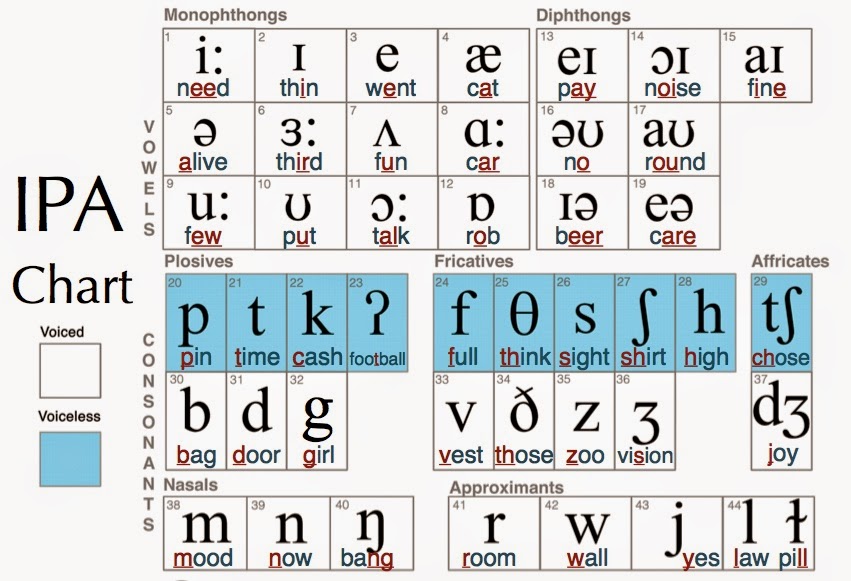
If you have any doubts about the answers, email me or write in the comments section below and I'll get back to you. If you struggled with the last exercise, don't worry! It's not necessary to know the whole IPA chart by heart to have good pronunciation. Just be aware of it and of the fact that English has many homophones. Finally, remember that context is key. So if you ask someone the meaning of a word, make sure you also give them the phrase in which it appears, otherwise you might be incorrectly told that court is the past tense of catch and caught is where criminals are convicted! 😜
Silent letter's cousin: the silent syllable

The Spanish-speakers among you may have already read my article ¡Sshh! Las letras silenciosas en inglés. So now I'd like to look at a close relative of the silent letter, which is the silent syllable. Like the silent letter, the silent syllable also affects pronunciation and, when used correctly, separates the near-natives from the not-so-native speakers. Who new silence could actually make you sound more native?
As I mentioned in my article about silent letter, Spanish is a phonetic language whereas English just isn't and therefore written words aren't always pronounced as you'd expect. Love it or hate it, this is something that every English learner has to accept. Sadly, as English pronunciation is unpredictable, I can't provide you with hard-and-fast rules. But before you despair, I can give you some handy tips and hints. That's better than nothing, isn't it?
So where does the silent syllable appear? It's normally present in words which should be 3 syllables or longer. Let's compare some Spanish words with similar English translations. "Miserable" in Spanish is 4 syllables long, whereas miserable in English is only 3. This is because the 2nd syllable is dropped so it actually sounds like "misrable" when said.
Another example is with the word restaurant. "Restaurante" in Spanish has 4 syllables and, looking at it, the English equivalent should have 3 but, in fact, it only has 2. We drop the 2nd syllable again so the word sounds like "restrant". The same can be said for interesting. It has 3 syllables : "intresting". So what's happened? That's right, you guessed it! It's that pesky silent 2nd syllable again.
And there are many more words like this. Have a go at saying these words correctly with the silent syllable: vegetable, several, every, natural. Once you've mastered these, have a go at the silent syllable quiz below. You have the definition and the 1st letter of the word to help you. Don't forget to practise saying the words out loud! Beware with questions 4 and 5 as here it's the 4th syllable which is silent. The first one is done for you.
1. Very unhappy. Miserable
2. A place to eat. R................
3. The opposite of boring. I.................
4. A place used for scientific experiments. L .................
5. Another word for toilet. L .................
6. Everything that happened in the past. H..................
7. A sweet food made from cocoa beans. C..................
8. The middle number or normal. A..................
9. A painkiller. A..................
10. Not together. S..................
11. A large, formal meeting. C..................
12. Not artificial. N.................
13. More than a few. S.................
14. A type of food grown from plants. V..................
15. The adjective of comfort. C.................
16. A synonym of each. E..................
How did you do? If you have any doubts, leave them in the comments section or email me. Although I hinted earlier that it's normally the 2nd syllable which is silent, as you've seen with the answers to questions 4 and 5, this is not always the case. In addition to this, not all words with more than 3 syllables contain a silent syllable. Examples of this exception are thermometer, asparagus and independence.
Sorry, I never promised rules! But it's true that generally English speakers don't like to deal with more than 2 or 3 syllables in a word. We'll normally try to reduce it wherever we can. I've always been impressed by super-long Spanish words like "desafortunadamente". Try to find an everyday word in English with 8 syllables!
There I leave you with an old English proverb: Speech is silver but silence is golden. I think this definitely rings true with silent syllables if you want to sound native.
Nobody likes a copy cat! Set phrases and idioms with the word "cat"

Cats are one of the most searched subjects on the Internet. So, to expand on what I first wrote about on my facebook page, and as the name of this site is Cat got your tongue?, I thought we'd look at all the words and expressions related to cats. Here it goes!
1. Words which include CAT
Okay, so these don't really have anything to do with the animal but it's simple way to start.
CATastrophe CATegory CATering CATalonia advoCATe abdiCATe
Can you think of any more?
2. Set phrases with cats to describe people
Which one are you?The copy cat
A copy cat is one of those annoying people who, through a lack of knowledge or creativity, copies your work and tries to pass it off as their own, using your achievements to their advantage. We've all met one.
The cool cat
Quite the opposite of the copy cat, in urban English, this is a person who's super cool.
The scaredy-cat
A person who is often shy, gets frightened easily or is unable to face their fears. Also referred to as a chicken in English.
The fat cat
Someone who's high up in the business world and normally extremely wealthy.
The crazy cat
In colloquial English, this is someone who does strange or outragious things.
The cat lady
This lady has nothing to do with the superhero Catwoman, but could be considered equally heroic. She's stereotypically a woman living alone who adores cats. She rescues them, often helps to re-house them and usually has many cats living with her at any given time.
3. Cat idioms and expressions
I've included the literal Spanish translations to help you understand them! A few of them translate directly into Spanish.
Cat got your tongue?
"¿Te ha comido la lengua el gato?"
If you haven't already learnt this one from the website, we ask someone this when they're too shy to speak or can't get their words out.
Look what the cat dragged in
"Mira lo que ha traído el gato"
Referring to the dead animals that cats bring home after hunting. This is a derogatory phrase used to comment on someone's arrival. Eg. (Mother says to child) Look what the cat dragged in! Where have you been for the past 3 hours and why are you covered in mud?
Note: only use this on people who you know well to be humorous. Otherwise, it may cause offense. Obviously, if that's the intention, then you can use it on people you don't like.
To let the cat out of the bag
"Dejar salir al gato de la bolsa"
This is to tell a secret. Often one which was supposed to be kept hidden.
Look like the cat who swallowed the canary
"Parecerse al gato que se comió el canario"
This reminds me of Sylvester and Tweety. It's used to describe when someone looks extremely proud of themselves.
To be having kittens
"Estar pariendo gatitos"
To be worried or very nervous about something. Eg. She's having kittens about her English exam tomorrow.
To be raining cats and dogs
"Estar lloviendo gatos y perros"
This is a very British idiom meaning to be rainig heavily.
A cat has nine lives
"Un gato tiene nueve vidas"
Yes, in English cats have more lives! This expression refers to the fact that a cat can survive things that would seriously injure or kill a human, like landing on all four paws when jumping from a great height.
Curiousity killed the cat
"La curiosidad mató al gato"
This is a warning about being too curious, as it just might get you into trouble.
Not a cat in hell's chance
"El gato no tiene ninguna oportunidad en el infierno"
Highly unlikely, if not impossible.
There's more than one way to skin a cat
"Hay más de una manera de despellejar un gato"
I've no idea how this idiom came into being, but it's quite self-explanatory. It means that there's more than one way of doing or achidving something.
There's not enough room to swing a cat
"No hay suficiente espacio para lanzar un gato"
Again, this is another weird one meaning that a place has very little room. Either because the space is very small or because it's crowded. I don't advise using a cat as a test!
I hope you've enjoyed the cat expressions. As always, feel free to comment with any cat-inspired ideas. Remember, if you're going to be a copy cat, make sure you get the author's permission to re-publish their work first, or simply give them the credit they deserve.
Jack the Stripper: a compilation of false friends for Spanish speakers
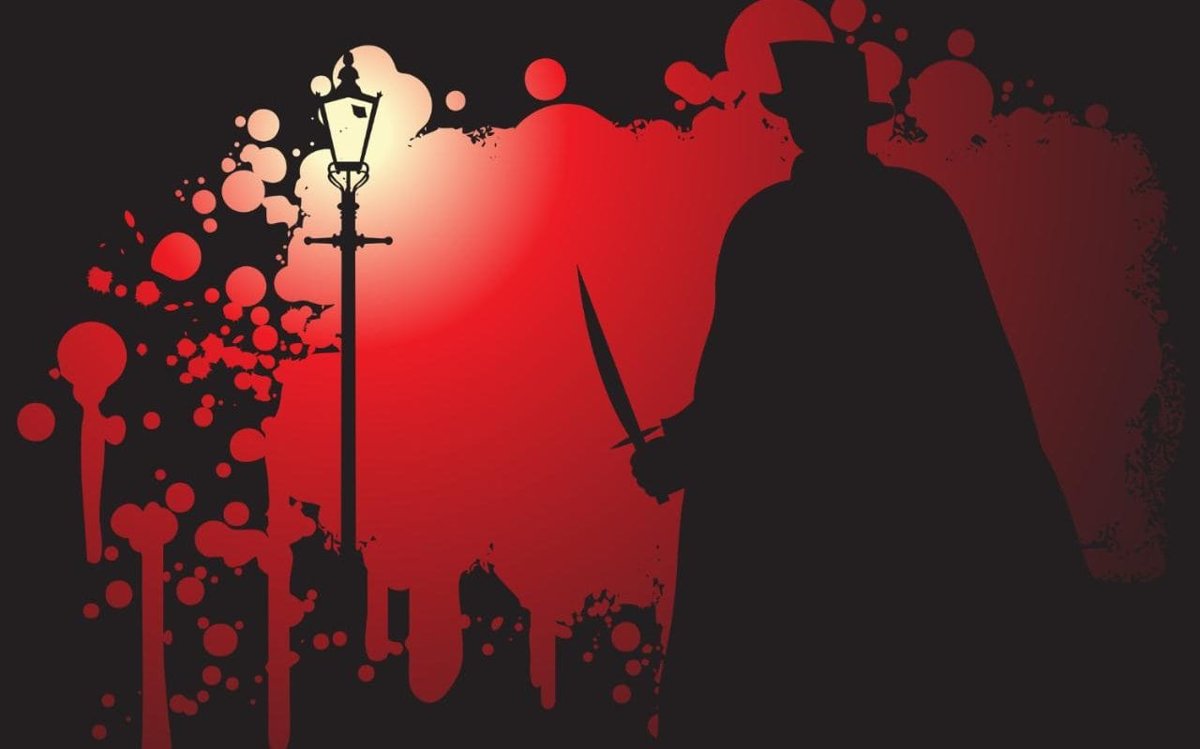
- Idioma/Idiom : An "idioma" is a language in English and an idiom is a "refrán" in Spanish. So we can talk about the English language in general but an example of an English idiom is Cat got your tongue? (¿Te ha comido la lengua el gato?)
- Jamón/Jam : Check out my article La palabra "jam" en inglés for help with these.
- Assistir/Assist : Be careful with these two as they could be used in the same sentence but change the meaning! You only assist an event if you are helping. If you're simply going, then you're attending.
- Carpeta/Carpet : A carpet is a "moqueta" but you put papers in a file. Like with "carpeta", the word file in English is also used for storing virtual documents.
- Constipado/ Constipated : Very important to avoid embarrassment! If you're "constipado", you have a blocked nose or, more scientifically, nasal congestion. However, you're constipated in English, you can't go to the toilet (estreñido).
- Maleta/Mallet : You certainly can't take a mallet on an aeroplane as this is a "mazo" and would be considered a weapon. You can take a suitcase though.
- Invitar/Invite : This is a tricky one because you can invite someone to an event like a wedding (invitar a alguien a una boda) but when we talk about buying something for someone, the word in English is treat. For example, you can treat someone to dinner (invitar a alguien a cenar). Note: treat shouldn't be confused with threat (amenaza). Don't threaten someone to have dinner with you!
- Casualidad/Casualty : When you say "por casualidad" in Spanish, this means by chance in English. A casualty refers to "una persona herida o fallecida a causa de ser víctima de un acontecimiento".
- Salado/Salad : You can eat a salad (ensalada) but "salado" is savoury. Remember this phrase: meat is never salad.
- "Sensible" in Spanish means sensitive and "sensato" means sensible in English. These are truly false friends and you may need a while to process these. You may need to invent and memorise two phrases in order not to mix them. Here's a suggestion:
Sensible Sophie is "sensato". Sensitive Sophie is "sensible".
- Trampa/ Tramp : A tramp in English is a "vagabundo". Note: vagabond does exist but only in old fashioned English. A "trampa" is a trick or trap. So don't fall in the trap and get it wrong!
- Trama/Tram : A tram is a means of transport, "tranvía" in Spanish, but a story's "trama" is the plot.
- Decepción/Deception : Deception is "engaño" and "decepción" is disappointment. You may feel disappointment as a result of being deceived.
- Diversión/Diversion : When driving in the UK, if a road is blocked because of roadworks, it's very common to see a sign with an arrow which says diversion. This is pointing the way to a "desvío" so if you thought it was directing you towards "diversión" like a party, then you're on the road to disappointment and deception my friends! If you're still unsure about the meaning of those two words in italics, see above.
- Diario/Diary : In a diary you may write down what you have to do or have already done, like in a "diario/agenda" but it doesn't refer to what happens every day. This means daily. For example, English newspapers which come out every day often have daily in the title, such as the Daily Telegraph or, for Harry Potter fans, the Daily Prophet!
- Familiar (n) / Familiar (adj) : A "familiar" in Spanish is a family member and is a noun. The identical-looking word in English familiar is only an adjective and can be used to describe many more things other than your family. If something looks/is/sounds familiar, "te suena". Take for example the phrase in English your face looks familiar, which means "tu cara me suena". If you're going for extra native points, you could also use the idiomatic phrase your face rings a bell.
- Plaza/Place : A "plaza de aparcar" is a parking space and a "plaza" alone is a square. A place can be an "asiento" or a "lugar/sitio".
- Pretender/Pretend : These two used to confuse me until I discovered they were false friends! The Spanish verb "pretender" means to try while the English to pretend means "fingir".
- Carrera/Career : A career is only a "carrera profesional" in English. If you're talking about a university qualification, it's called a degree.
- Discusión/Discussion : It's very important to get these two right as they can change the meaning of the context. A "discusión" is an argument in English, whereas a discussion is a "debate". Although a discussion can get heated, it doesn't end in people losing their temper and shouting at each other.
- Título/Title : The confusion here comes from the fact that "título" has more meanings in Spanish. Similar to English, "título" refers to, for example, the title of an article or a title of nobility (título nobiliario). "Título" in a legal context would be entitlement, so a "título de propiedad" would be a property entitlement. A "título de inglés", however, would be an English qualification.
And now for the ultimate in false friends ..... anglicisms in Spanish! Okay, some of them are harmless like bacon, jamón york or Black Friday. But others actually impede English learning and just create more misconceptions about the language. Here are the 5 deadliest ones which are frequently misused in English.
- Freaky : A person or situation can be freaky (adjective meaning "raro/peculiar"). But a person who has a highly specialised interest in something is a nerd. For example, the characters in The Big Bang Theory are physics nerds.
- Parking : This is the action in English, not the place. The place is either a car park (British English) or a parking lot (American English).
- Smoking : Again, this is the act, not anything you wear. Compare these two sentences.
Smoking is not permitted in public buildings.
He was wearing a black tux(edo) AE / dinner suit BE with a white bow tie.
AE = American English BE= British English
- American : an American is only an American citizen, not a kind of jacket, which in English is called a blazer.
- Balconing : Although it's generally Brits on holiday in Spain who do this, it's still not a classified sport (and hopefully never will be!) therefore we don't have a specific word for it. Only the phrase jumping off a balcony into a swimming pool.
And that's it! So now's the time to get your head around these words and practise using them correctly. You may be wondering why I'm not promoting the creation of new words and uses since my last article was about Shakespeare and how he invented many words. Well, the truth is folks you have to master the English language like Shakespeare before you can become him. Once you've done that, then you can do what you like ... take it one step at a time!
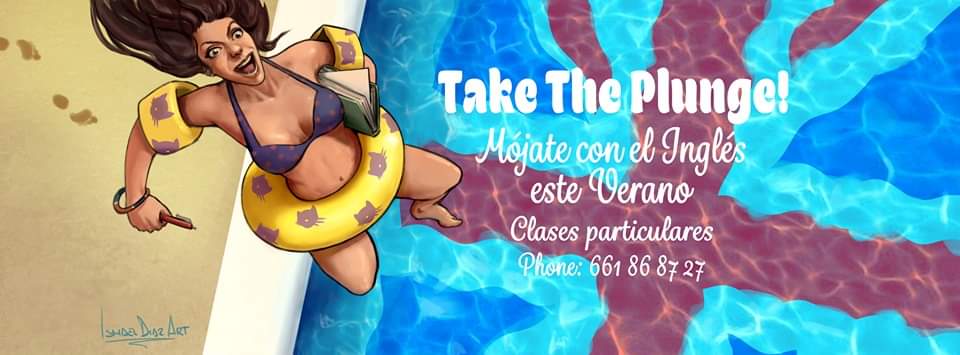
 Until the cows come home = until very late/early morning
Until the cows come home = until very late/early morning